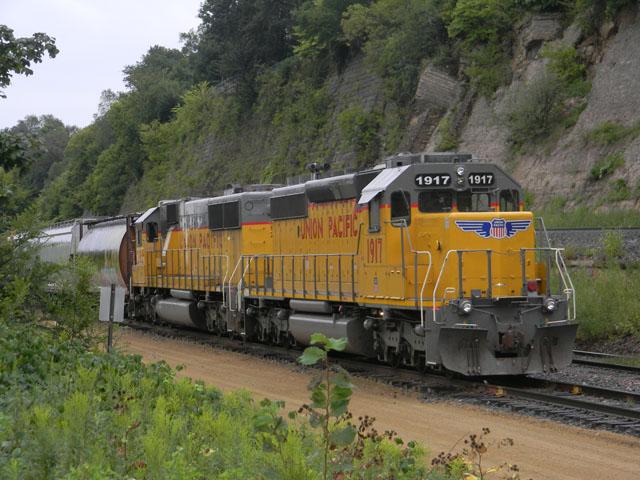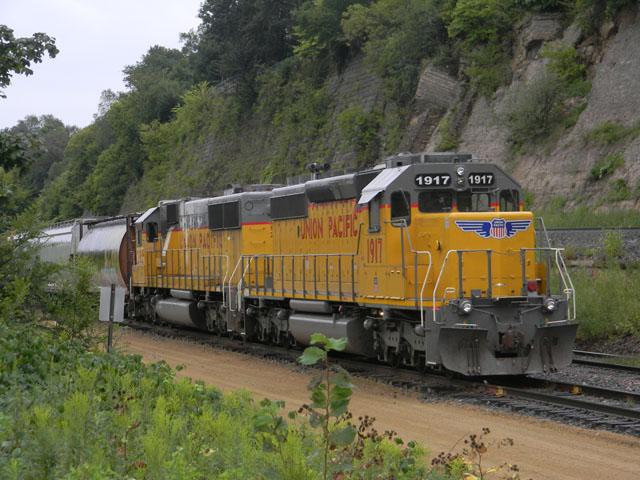Market Matters Blog
Surface Transportation Board Requires Railroads to Submit Weekly Reports, Recovery Plans
MINNEAPOLIS (DTN) -- The Surface Transportation Board on Friday announced it will require all seven Class 1 railroads to send regular progress reports on service, operations and employment while the STB assesses the need for further action to help resolve the current problems.
The STB also will require BNSF Railway, CSX Transportation, Norfolk Southern Railway and Union Pacific to file service recovery plans explaining the "specific actions that each carrier will take to improve service and the specific metrics by which it will evaluate its progress toward such improvements."
The board decision comes after heated testimonies during the recent two-day hearings April 26-27 as the STB heard from rail shippers and labor unions about deteriorating service, staff shortages and low employee morale.
The recovery plans will require timelines for key service performance indicators for the past three years and targets each rail line expects to hit after the end of the six-month reporting period.
The STB also expects each railroad to address how they will deal with their current labor shortages and what they will do to address labor needs in the future as well.
The rail lines also must address reductions in speed, or velocity, that testimony in the hearings suggested has contributed to congestion and delays. The order states: "The Board expects each carrier within its service recovery plan to report on any plans it has to lift current velocity restrictions, as well as any plans it has to increase the power on its through trains -- and not to limit the use of that power -- so that each such train has the capacity to travel at track speed. To the extent a carrier has no such plan to lift velocity restrictions or increase power, the Board expects the carrier to explain why."
P[L1] D[0x0] M[300x250] OOP[F] ADUNIT[] T[]
Additionally, and for a three-month period, BNSF, CSXT, NSR and UP will be required to participate in a conference call with the Board's Office of Public Assistance, Governmental Affairs and Compliance (OPAGAC) every two weeks. The calls will address progress made to resolve the significant rail service and labor shortage problems reflected in the record and improve rail service.
"These calls will also provide a forum for Board staff to better understand each carrier's service progress report," the STB stated. "This bi-weekly status conference is not intended to replace the informal and confidential process facilitated by OPAGAC to address shipper-specific problems and concerns; all stakeholders are encouraged to make use of that process as warranted and to keep the Board apprised of ongoing service issues."
Board Chairman Martin Oberman stressed the problems raised by shippers and others during the hearings and emphasized a need for service improvements.
"While the railroads have faced certain challenges over the last few years, the evidence produced at last week's hearing is overwhelming that the railroads' longstanding practice of reducing operating ratios by cutting employment levels, mothballing locomotives, and eliminating other essential resources are the central reasons why farmers have been hours away from depopulating herds, manufacturing facilities have reduced operating hours, and shippers cannot get their products to market on time or receive essential raw materials for their companies."
Oberman added, "These failures are harming the nation's economy and, in my view, are contributing to the inflationary forces affecting food and fuel in particular."
Oberman also made it clear that requiring additional reporting from railroads may not be the final result of the hearing on service issues.
"Today's decision is an immediate step the Board can take to enable needed monitoring of the improved efforts the railroads have been promising for months, and to determine if additional regulatory steps are necessary to promote reliable service," he said.
While the STB decision requires all Class I carriers to submit several specific reports on rail service, performance and employment, at this time, the Board said it is not requiring service recovery reporting from CP, CN or KCS. However, the Board notes that it is prepared to address service problems with respect to these carriers, as appropriate.
Here is a link to the entire contents of the May 6 decision: https://www.dtn.com/….
Here is a link to the recent DTN story covering the hearings: https://www.dtnpf.com/….
Mary Kennedy can be reached at Mary.Kennedy@dtn.com
Follow her on Twitter @MaryCKenn
(c) Copyright 2022 DTN, LLC. All rights reserved.






Comments
To comment, please Log In or Join our Community .